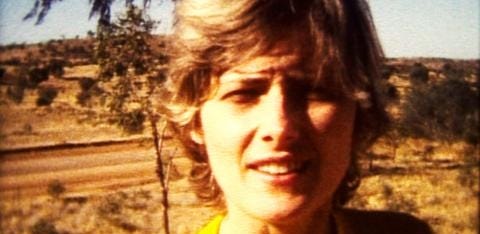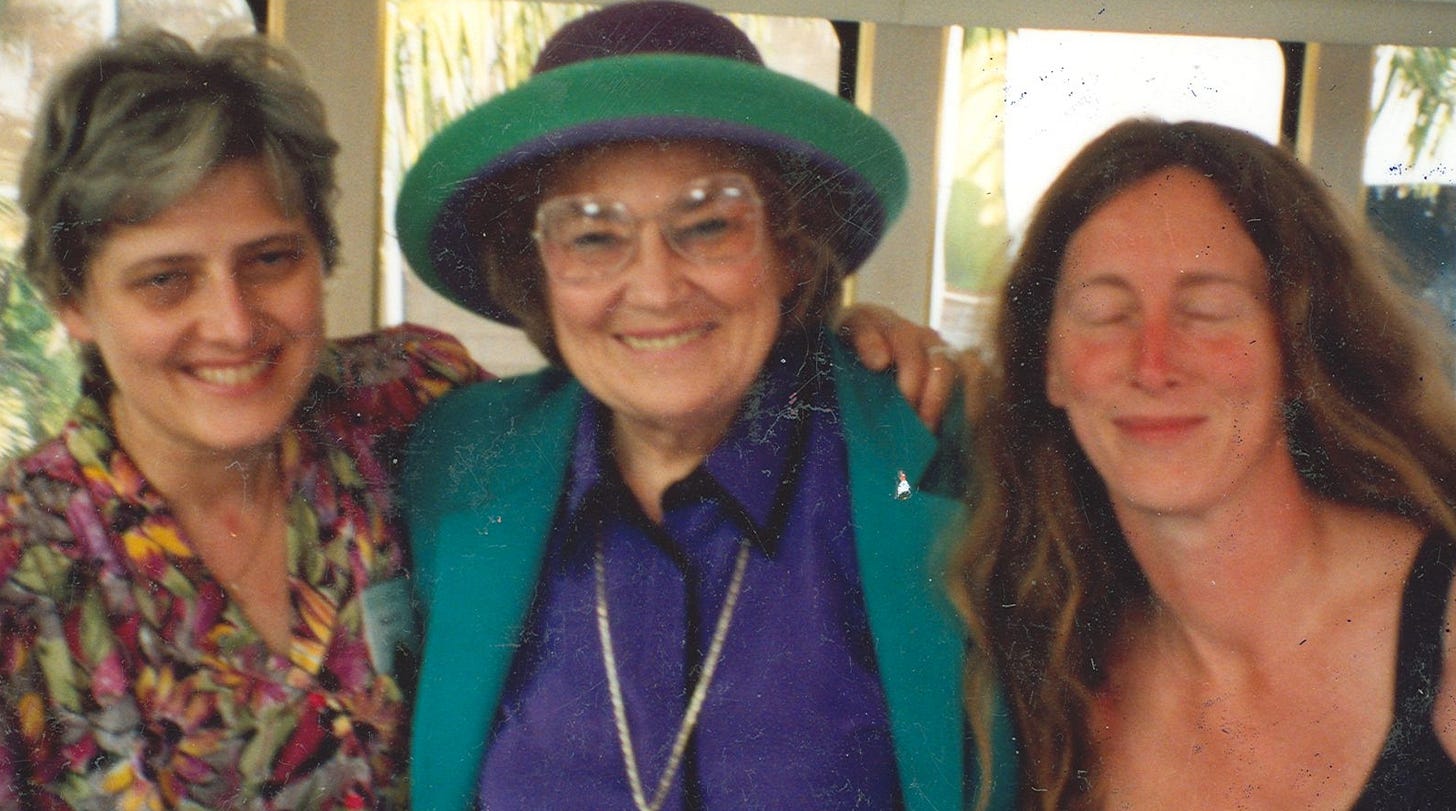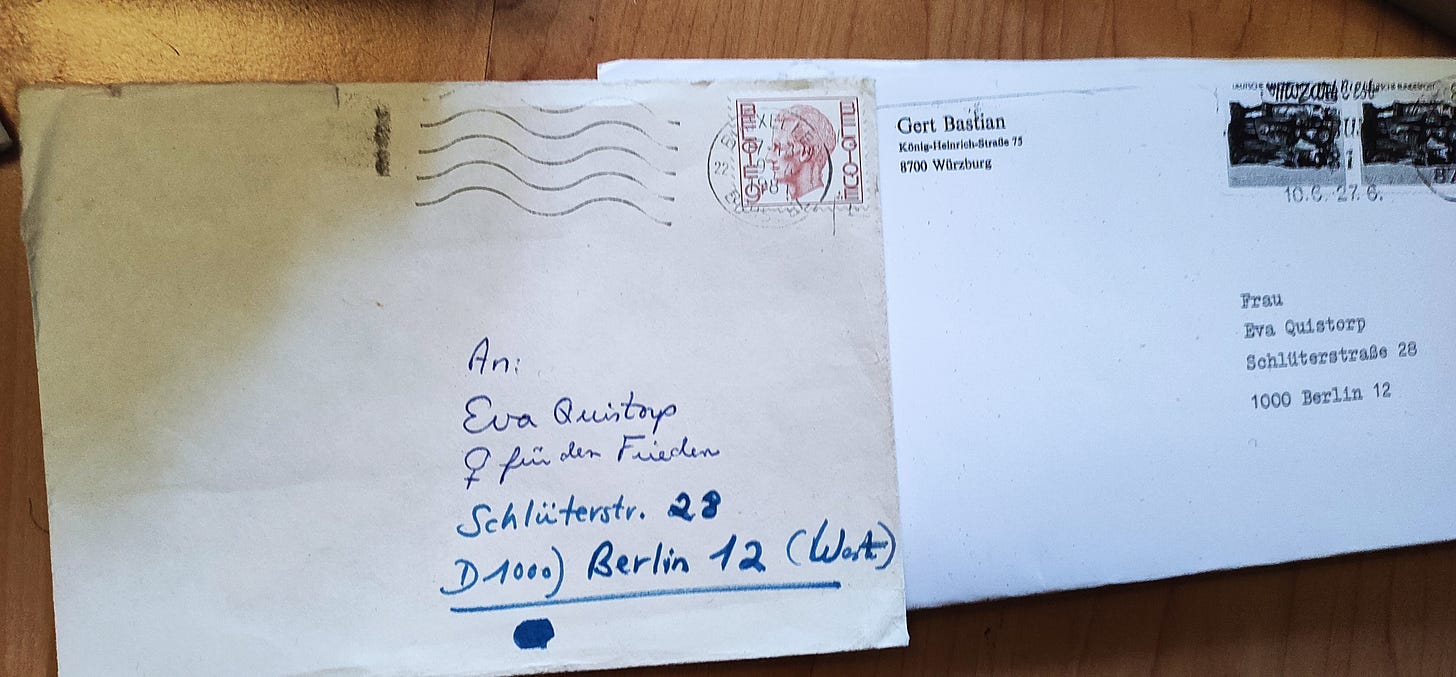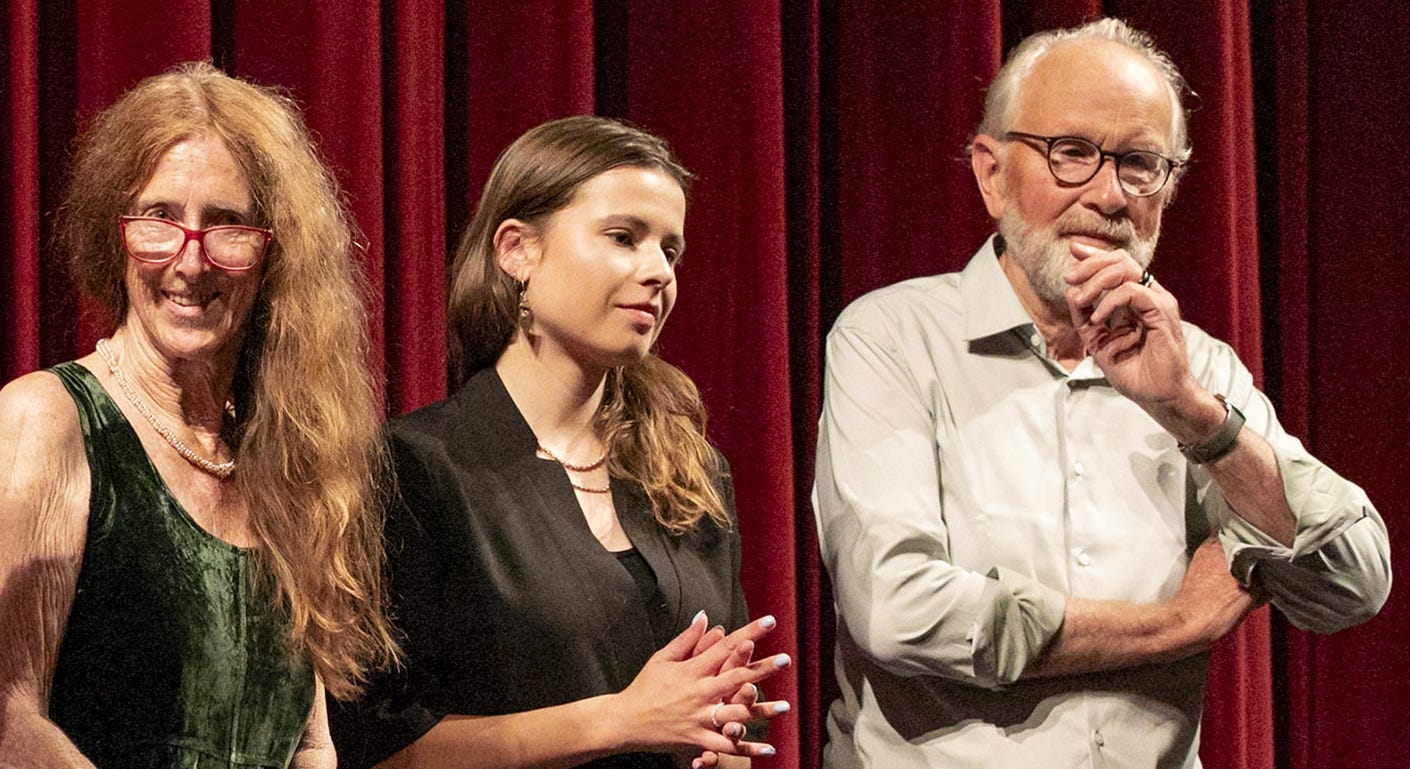"Time is running out".
Guest post: Film portrait “Petra Kelly – Act Now!” about the German Green icon
Petra Kelly, born in Germany, grew up in the USA of the 1960s. As a student, she worked in Robert F. Kennedy’s election campaign team. Her role model was Martin Luther King Jr. with his philosophy of civil disobedience. In the early 1980s, she mobilized hundreds of thousands of people in Germany against the deployment of US nuclear missiles. She believed that one person could change the world. A film review.
By Clarissa-Diana de Grancy
Act now! takes us back to post-war Germany - to a time of protest, awakening and self-liberation. A time when people began to stop accepting what a political and social system told them to do without being asked. We experience Petra Kelly as a combative speaker who, with her fighting spirit and determination, gave a voice to all those who took to the streets for women's and human rights, for peace and for the environment.
Idealist
Petra Kelly at peace demonstrations, Petra Kelly in front of the UN, Petra Kelly at the historic entry of the Greens into the German parliament (Bundestag), Petra Kelly with banners and posters and at a table with East Germany’s leader, Erich Honecker. Film director Doris Metz has undoubtedly meticulously combined interviews with contemporary witnesses, archive material and private photographs to create a solid overall composition that cannot conceal one thing: the effort to surround the intrepid idealist with an aura of untouchability.
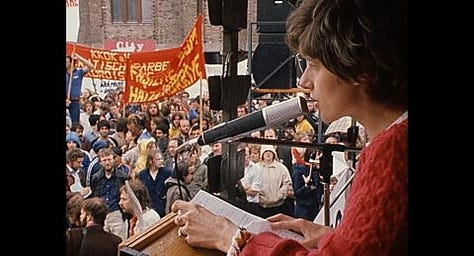

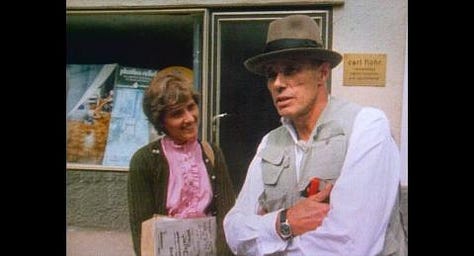
Numerous close-ups of Kelly's face mark the attempt to show the politician in an approachable way. It seems as if there is a second, a different Petra Kelly who, as it were, eludes the camera eye. What wants to be seen in the light shifts into the dark. Contradictions are not resolved in the film - instead, new ones are added. The indigenous activist Milo Yellow Hair of South Dakota, Green co-founder Eva Quistorp, US women rights activist Cora Weiss, ex-Green parliamentarians Lukas Beckmann and Otto Schily - some of Kelly’s most important political companions have their say in the film. However, the selection of sound bites and their embedding in the overall context invites critical consideration. What is shown, what is suggested?
When the Greens were founded - and even before that in the anti-nuclear and women's movements - Eva Quistorp stood closely alongside Petra Kelly internationally and on the federal executive committee. Quistorp was the first to interview her friend and confidante for the feminist women's magazine Courage. The two were linked by a female friendship that could stand as a future-oriented antithesis to the subtle male alliances that were also gaining the upper hand in the Green Party.

In the film, Quistorp, who later became a Green MEP, searches for the button on the doorbell of the Green Party’s Heinrich Böll Foundation. Wedged between two archive walls - striking historicity - the former companion is supposed to tell her story. We learn about her last conversation with Petra Kelly a few days before Kelly’s murder on the night of October 1, 1992. And about Quistorp’s conversation with Kelly's grandmother after the death of her granddaughter - a tragedy that was declared a “double suicide” at the subsequent federal press conference. Eva Quistorp1 contradicted this interpretation with an interjection - which only the New York Times took up in an interview at the time. In Act now!, on the other hand, Lukas Beckmann is given plenty of space to admit his “mistake” at the memorial service. He was the one who decided to honor the murderer and his female victim equally.
A role model for today?
Meanwhile, the camera doesn't seem to want to commit itself - only when it comes to the German Friday-for-Future activist Luisa Neubauer and ex-parliamentarian Otto Schily does it decide on eye level and discreet appreciation. Yesterday and today - black and white. The film director repeatedly makes use of this woodcut technique and thereby weakens the necessary view of party-historical contexts. At the same time, this stylistic device results in an exaggeration - which means that the portrait does not only fail to do justice to the portrayed: Luisa Neubauer, celebrated in the film as a modern icon on the Olympus of the environmental movement, also remains strangely pale in her personality.
Is it even possible to equate the work of a politician in the German parliament with the successes of an activist at the forefront of a grassroots movement? Doris Metz, the film director, does just that. The alternation between the fragments of memories of Petra Kelly and the interspersed contemporary references to the Fridays for Future movement seems like a reciprocal echo that doesn't really fit together. Rather, the aim seems to be to find parallels in order to identify the tradition of political commitment in the persons of Kelly and Neubauer.
The internal party upheavals that Petra Kelly faced, especially during her last years in politics, are largely omitted from the film. With consistent softening, the film also distances itself from the contradictions that characterized Petra Kelly, and not only in her political work. All of this is obviously permissible if a person is to be portrayed in her inviolability, like a Virgin Mary. But a portrait that wants to show a personality in all its facets also includes historical references, interferences and uncomfortable truths.
Why does the moviegoer learn nothing about the darker side of the political career of retired General Gert Bastian - Kelly's partner who, according to all the evidence, shot her in her sleep before killing himself? Why are we denied access to the complex psyche of Petra Kelly and to the personality that she was outside of her public role as a politician? Ina Fuchs, former office manager of Gert Bastian, fails to correct the theory of a double suicide. What is more relevant: Gert Bastian's motives for the crime - or the epic description of the circumstances under which two dead bodies were found? Radical movements such as Extinction Rebellion, says Fuchs, could be sure of Petra Kelly's support today if she were still alive. However, it is more likely that Kelly would not have joined these groups and would even have criticized them instead - as they are not in the non-violent tradition of Martin Luther King Junior, to which Kelly had adhered since her time in the USA on Robert Kennedy's election campaign team.
The Greens
“Petra Kelly made the Greens, but the Greens didn't make Petra Kelly,” says former Green politician Otto Schily. How did this sentence make it into the movie? A statement with which Schily pays tribute to his former companion and yet at the same time allows the interpretation that Petra Kelly alone founded the Greens and formed them into a political democratic force - while doing her own thing in the slipstream of the party. A distorted picture: although Petra Kelly, with her US-American influence, knew how to present herself excellently and was ambitious, the environmental and socio-political goals, for which many party colleagues also campaigned, were nonetheless at the forefront - beyond any egocentrism.
Inspiration
It took director Doris Metz and her team four years to bring this cinematic portrait of the legendary Green Party politician to cinemas. Nevertheless, in many places the documentary misses the opportunity to take a fresh look at the familiar and leaves the viewer with more questions than answers.
However, Act now! offers inspiration in that it allows us to reflect more deeply on the personality of Petra Kelly - what made her tick, what drove her and why she had to die far too early. A remembering, a tracing that we might not have found our way into without this cinematic work. Similar to Torsten Körner in his film “Die Unbeugsamen” (The indomitables, 2021), Doris Metz makes it clear in Act now! that there were pioneers of environmental and women's politics who must not be lost in today's “influencer” media society.
“Time is running out”, says Petra Kelly when a British journalist asks her why she is speaking so quickly. She reminds us that we can now do what is necessary to preserve democracies and environmental and women's rights. Petra Kelly's breathlessness points to a fact that is as valid then as it is now: We must take action NOW. And start with ourselves.
Clarissa-Diana de Grancy is co-editor of the specialist magazine Aufsichtsrat aktuell (Supervisory Board current), managing Partner of WOMEN'S BOARDWAY GmbH and a member of the advisory board of the European Artists' Guild for Medicine and Culture.
Guest posts do not automatically reflect the opinion of the blog operator.
Please also read Eva Quistorp’s “Missing you - a personal letter” in my article
Today Petra Kelly would have turned 75
Petra Kelly was shot dead by her life partner, former NATO general Gerd Bastian, in early October 1992. The exact date is uncertain, as the bodies of Petra Kelly and Gerd Bastian were not found until October 19, 1992 - more than two weeks after the crime.



